Richard Hugo Didn’t Twitter
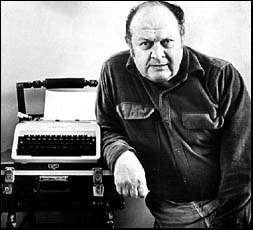
Triggering Town or Trending Topic?
Tao Lin, who is more prolific than Lil Wayne, recently had this to say on Twitter:
someone fb msg’d me re ‘writing tips’ re ‘being focused,’ seems like all i was able to suggest was to ‘not have friends’
I find Lin’s suggestion curious. The energy I spend pre-meditating my tweets (yes) distracts me more from the process of writing poems than does any genuine interaction with other members of the species. On Twitter, I dumb down a notch and ham it up two. I don’t calculate syllabics; I calculate followers. I’m no longer writing for my ideal audience (Jewish girls with a junkie fetish) (me). I’m writing for everyone. I feel like Joan Rivers on HGH.
Below, I’ve conducted a little survey of other poets on Twitter to see what they have to say about if/how Twitter has affected their craft:
Ron Silliman: Twitter has impacted me almost not at all. Unlike Facebook, it is a one-way communication medium, which makes it fine for marketing, but not good at the more complex communicative tasks of daily life.
Amy King: Twitter doesn’t mess with me because I don’t mess with Twitter. If you want to mass produce writing, then don’t have friends. But where’s your life then? It might work for some, no doubt. But I like writers who seem to have some joy in their lives. So many somber writers who take themselves way too seriously — I see them and wonder, especially at AWP, what do they enjoy? Joy seems to be uncool or something in some realms. Perhaps it’s all above and beyond my little joyful mind. If tweeting brings a writer joy sometimes, kudos.
Daniel Nester: Fart tweets are all I know. It informs my poetics.
Sommer Browning: Twitter has destroyed my writing, but not as much as interacting with people has. Interacting with people has destroyed my writing, but not as much as being in love has. Being in love has really destroyed my writing, but not as much as not writing has. Not writing has destroyed my writing, but not as much as paralytic anxiety has. Paralytic anxiety has destroyed my writing, but not as much as the absolute disappearance of my fingers.
Tao Lin himself: I edit my “tweets” in the same manner I edit my poetry, or other things, I think. I would like my “tweets” to be consistent re “tone”/”prose-style” throughout and to be rereadable. In that sense it “acts” in the same way any other form does, partly as a “motivating” factor and partly as an “interest-increasing” factor, in that if a lot of people that I like are working within a form (like the 20-page realistic short-story form, or the “short novel” form, or whatever) it seems more fun to do things within that form because you can compare what you’ve done with what other people have done, knowing everyone is using the same “tools.” I would like to publish a book of my “selected tweets” at some point. It would not be unsimilar, in my view, to a book of poetry or a book of aphorisms or even a novel like “Why Did I Ever” by Mary Robison or David Markson’s later novels. My “publishing house,” Muumuu House, publishes “selected tweets.”
Matthue Roth: I don’t think Twitter messes with my writing so much as it’s just a paperweight on top of the reset button of my writing. Usually, I’ll go through phases of writing poems and phases of writing fiction — I’ll switch off every couple of days or months or something, my brain will be in one mode, and then I’ll forget to put in a line break and end up with a bunch of paragraphs and realize, oops, I’m writing a novel now. The spacebook twittyness just fries my brain even further — I’ll be like, am I supposed to be thinking in 17 syllables or 140 characters or what? I think, once I’m nestled in one particular form, it becomes natural to me. But this constant switching keeps me on my toes, which is both good and bad for my productivity.
Nate Pritts: My writing is in response to the vortex, the dynamism spinning today, & distractions are an essential element binding insight to lived life.
Collin Kelley: I think writers, for many reasons, have time management issues. It’s the day job, family life, the economy, writers block or any number of reasons. You can add social networking to that list, too. Facebook, blogging, and Twitter can all be time suckers, but like with television and chocolate cake, you have to know when to stop. I use Twitter to promote my work, share links about things that interest me and catch up with other writers. I don’t sit on it for hours, I don’t tweet about what I had for lunch, the consistency of my bowel movements or how much I hate Justin Bieber
D.W. Lichtenberg: Twitter hasn’t changed my writing at all. Wait, was that under 140 characters? Let me rephrase that and get back to you.
Reb Livingston: I’m not a “heavy” twitterer. I can think of 2 or 3 days where perhaps I was, but mostly not. I check Twitter a few times a day, post announcements, read other people’s tweets, occasionally respond. So I can’t say it’s affected my writing. I am easily distracted, but can’t blame Twitter, it doesn’t even make my top 5. I piss more time into the FB hole, reading people’s posts, status updates and browsing through pictures of their kids and cats. Same thing can be said for blogs and email. I need a little more substance and, um, length, to keep me distracted. So yes, friends and family are a big distraction for me too, but I wouldn’t trade them for more writing time. When I need to write, I find the time, which is usually 12-3am, when most people are asleep. I minimize my email application, blog reader, news sites, FB, Twitter windows and don’t allow myself to look at them. I close my office door so my husband knows to knock first. I also sneer, growl and roll my eyes to make myself less pleasant and approachable.
Jason Schneiderman: I personally prefer not to tweet or facebook– I like e-mail; in part because I like being able to be able to modulate my personality based on who I’m speaking to. I hate the false intimacy of facebook– that we’re all equally friends, etc. But it’s a nice way to keep up with people, and I like playing scrabble and chatting. So I just facebook like once or twice a day (or if I’m bored and stranded with only my cell phone). I rarely tweet…I don’t think I get the interactivity of it.
Elisa Gabbert: I usually don’t use Twitter at home/at night/on the weekends — I mostly use it when I work, when I wouldn’t be writing anyway (er, I mean, writing poetry — I work as a blogger and copywriter)….As for things that negatively affect my creative writing: having a full-time job does way more damage than anything else. Also: living in a cold climate where I can’t run/walk outside as often. Long stretches of being away from both computers AND people and any other potential distraction (yes, including books, but also TV, which I don’t have anyway, etc.) are the times when I actually get ideas and feel the need to write. So I try to take long walks (alone) and run without headphones whenever possible.
Brandon Scott Gorrell: I view myself as ‘trying to be good’ at Twitter while I view many of my peers as being ‘genuinely good’ at Twitter. It seems like Tao Lin is ‘a small man in the forest’ on Twitter. He’s really good at Twitter. Chris Killen is really good at Twitter; he has a ‘guerrilla’ style of Tweeting – not Tweeting for months, then unleashing five to ten rapid-fire Tweets in a matter of minutes. Zachary German is pretty good at Twitter; like, genuinely good, in a sense, but marketing to a more narrow audience, somehow. Hard to articulate what I mean by that. I feel like Gene Morgan has his own family-oriented style of Tweeting, kind of – like he tries to achieve a certain ‘new dad software American-dream love my kids’ irony – and his style might remind me of a white minivan driving slowly past a Wal-Mart or for some reason the phrase ‘big tits’. Ryan Manning has a very specific and ‘sophisticated’ style of Tweeting, similar perhaps to a glass of champagne with a brioche or a fine cigar coupled with Louis XIII de Rémy Martin. Jimmy Chen seems to struggle with finding his Tweeting style, sometimes switching from heavy use of scare quotes to non-scare-quoted impossibly abstract language to delighting humor. A lot of people seem to use the Tao Lin Tweeting ‘template,’ simply replacing his experiences with their own. My tweets are a confused mixture of trying to achieve the same affect Tao Lin often does, ‘quips’ on the nature of life, death, and solitude, and non sequiturs; they generally seem stupid and ‘not good enough’ (to the point that I spend over 1 – 4 hours a week deleting tweets and ‘agonizing’ over my Twitter-ouevre). For all of these reasons Twitter has increased the frequency, quality and duration of my feelings of terrible anxiety, alienation and low self-esteem.
Ben Mirov: I am pretty sure the impulses that lead me to write poems are stronger than the impulse to Twitter or Facebook. I like to think that Poetry tops everything. Even if your in the middle making out with someone, a poem can pop into your head and absorb all you attention. Twitter doesn’t effect me that way. I get tired of Twitter, Facebook and everything my computer offers me, but I pretty much wait around everyday for the messages that Poetry sends me. There’s no competition.
Christopher Hennessy: One of my first interactions was submitting a 140 character poem to a Twitterer who decided to publish Twitter poems. It was accepted and I was super-jazzed about it. But then …nothing. The ‘publishing’ stopped and no one gave a damn about my little twat of a poem. I knew then and there not to trust Twitter poets.
I tend to post stuff on Twitter by actually linking my Twitter account to my blog, which is in turn linked to my Facebook– all automatically….or at least I think that’s how it works. I can never remember which is linked to which. It’s supposed to save time. It’s a weird sensation: I post a blog and seconds later someone starts following me on Twitter. It’s like someone’s watching me. And not in the cool “Rockwell-80’s-pop-hit” way.


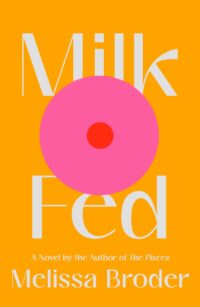
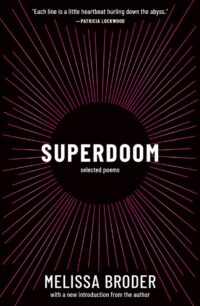
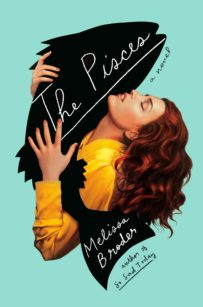
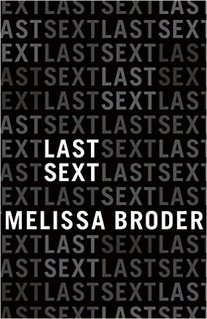
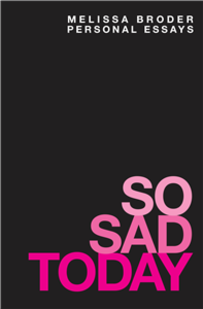
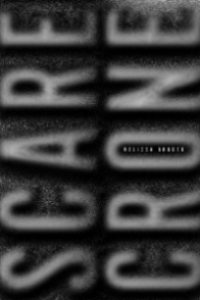
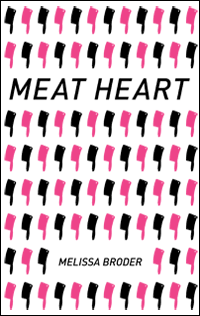

FB is way more vortex than twitter.
[…] Melissa Broder asks poets for their thoughts on Twitter. […]
why do tao lin and his minyons all use quotes arnd EVERYTHING? it’s getting tired.
Don’t hate the player, hate the game.
Twitter is most certainly not a normal medium for writers but I think a few things can be gleaned from it. 1. having to edit down what we say to be as succinct as possible. 2. Haiku is making a comeback.
the things inherently wrong with it are 1. Haiku is making a comeback in the hands of idiots. 2. it has already been used as a medium for poetry so once done and it is no longer art or interesting. 3. the continued death of proper language creates a gulf inbetween intention and understood meaning. 4. I have NEVER twittered as I am not a twit. 5. it’s a fad that will hopefully pass like roman candle.
You can’t twitter Richard Hugo’s “Death At the Kapowsin Tavern,” which is a good argument against, I think.
I’m pretty sure if it wasn’t for twitter poetry would be dead now. Just gonna throw that out there.
Twitter=haiku superhighway
“I think writers, for many reasons, have time management issues.”
I hate that kind of middle-class language. It’s redolent of office cubicles. It makes me feel like throwing up. When did poets start using language like that?
I don’t even know what Twitter is, and I don’t want to know. Sounds like stupid shit. I came here to read about Richard Hugo.
[…] our first installment twittering poets wrote about the impact of social networking on their craft. One commenter wrote […]
[…] two-part series on twitter as a strange attractor in the writer’s life is now live. In Part 1 she spoke to poets, including Ron Silliman, Amy King, Tao Lin, and Reb Livingston. In Part 1.5 she […]
Hi, just came here after an fast yahoo search. Fine blog you got here! Keep it up!
[…] Richard Hugo didn’t Twitter […]
[…] Sommer Browning found in “Richard Hugo Didn’t Twitter” var a2a_config = a2a_config || {}; a2a_config.linkname="Twitter has destroyed my writing… […]